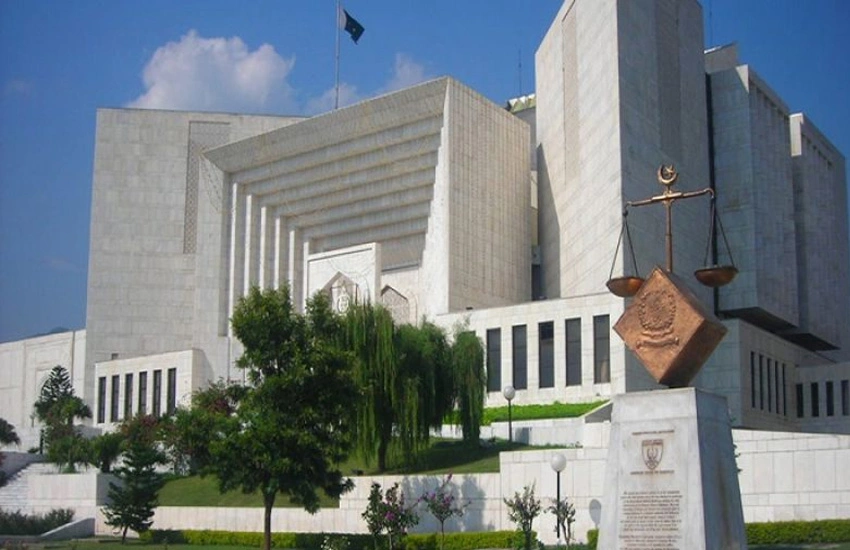- Web Desk
- Feb 24, 2026
Reserved seats case: SC ruling against PTI draws ire
-

- Web Desk
- Jun 28, 2025

WEB DESK: In a significant verdict, the Supreme Court (SC) of Pakistan has ruled that Pakistan Tehreek-e-Insaf (PTI) will not receive reserved seats in national and provincial assemblies, instead allocating them to rival parties including PML-N, PPP, and JUI. The constitutional bench, headed by Chief Justice Amin-ud-Din Khan, delivered the judgment with a 7-5 majority, upholding the earlier decision of Peshawar High Court while accepting review petitions against its own previous ruling.
The majority judgment concluded that PTI was ineligible for reserved seats, with seven justices forming the decisive bloc. The bench included Justices Musarrat Hilali, Naeem Akhtar Afghan, Shahid Bilal, Hashim Khan Kakar, Aamer Farooq, and Ali Baqar Najafi alongside Chief Justice Amin-ud-Din Khan. The court maintained that its decision aligned with constitutional requirements regarding seat allocations.
Dissenting opinions emerged from Justice Hasan Azhar Rizvi and Justice Muhammad Ali Mazhar, who argued that the Election Commission should have determined seat distribution after examining relevant records. Justice Jamal Mandokhail partially concurred but restricted his opinion to 39 seats. Notably, Justice Salahuddin Panhoor recused himself from proceedings, while Justices Ayesha Malik and Aqeel Abbasi had dismissed the review petitions during preliminary hearings.
PTI no more eligible for reserved seats after Constitutional Bench ruling
This verdict overturns the Supreme Court’s July 12, 2024 decision that had initially granted these seats to PTI through an 8-member majority. The review petitions were subsequently filed by PML-N and PPP in July 2024, followed by the Election Commission in August, leading to the current reversal. The judgment significantly alters Pakistan’s political arithmetic, strengthening ruling coalition parties at PTI’s expense and potentially influencing future electoral processes. Legal experts anticipate this may set important precedents regarding party eligibility and seat allocation mechanisms in Pakistan’s parliamentary system.




